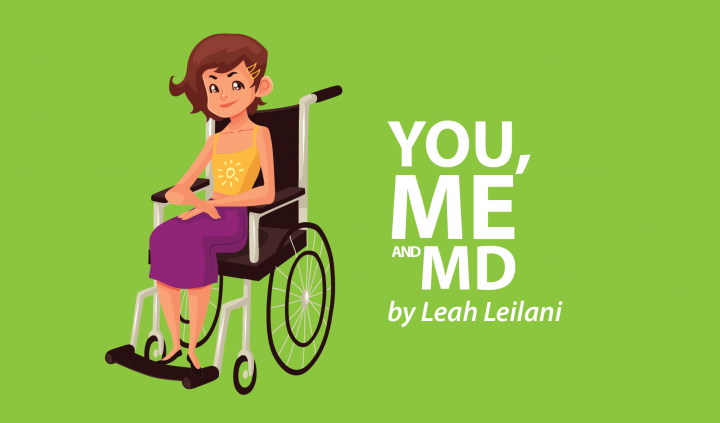My Search for a Comfortable Bra as a Woman in a Wheelchair

As women, we reach a point growing up when we must enter the intimates section of the department store to begin shopping for bras. Finding a comfortable bra is an exercise of trial and error for every woman, and especially for those of us living with a chronic illness or disability. Our list of needs is different than those of the average woman. In this column, I will share my struggles to find a comfortable bra as a wheelchair user and someone who lives with a chronic illness.
Here’s where my journey began: My mom assisted me in choosing my first bra when I was 9 years old. She made a trip to Target and selected several styles for me from which to choose. Trying on clothes at a store depletes my energy, so she brought the bras home for me to try on at my leisure. We have developed a system of buying, trying on, and exchanging to prevent a relapse.
My first bra was a training bra; it was a pull-on style and didn’t have padding. A training bra does not provide support, instead, it helps a young woman to get used to wearing a garment underneath her clothes. I recommend that every young girl start with a training bra to help with the transition to wearing a full one.
As I matured, I was introduced to underwire bras. My mom had positive experiences with them, so she thought they would be comfortable for me. But that wasn’t the case. For the first time, I knew what it was like to feel uncomfortable in a bra. The cups didn’t conform to my chest and the straps kept slipping off my shoulders no matter how much I tightened them. At the time, my disease hadn’t progressed far, so I didn’t have to worry about the clasps coming undone while resting in bed. Though, that soon became an issue.
During a trip to Nordstrom, my mom was getting professionally fitted for a bra, so I asked if I could get measured, too. We agreed that I could as long as the bra I chose wasn’t too expensive. Following my fitting, the store assistant brought me a nude bra without underwires. The stretchy material molded seamlessly to my body. My mom and I went to the checkout. I wore the bra for the next few weeks. However, I noticed that it did not provide me with sufficient coverage. The weakened muscles in my back make me slouch and caused the bra to slide down.
My mom searched for a bra outlet nearby and found a store mere blocks from our neighborhood. Bra Garden offers a wide range of styles, colors, and sizes, and the store’s owner, a knowledgeable and considerate woman, went above and beyond to help me find the perfect bra. I tried on different styles, including bras with clasps in the front and others with wide straps — but nothing hit the mark until my mom mentioned the brand name Coobie.
The owner had a few Coobie bras in stock. The brand is known for its soft, loungewear-type bras; I chose a camisole bra with a high neckline. The removable pads offer shape and the pull-on style is perfect for sleeping in.
Being a woman is a wheelchair can be difficult at times — but where there is a will, there is definitely a way. Thanks to my mom and the owner of Bra Garden, I have comfort and support, whether I’m in my wheelchair or taking a nap.
***
Note: Muscular Dystrophy News is strictly a news and information website about the disease. It does not provide medical advice, diagnosis or treatment. This content is not intended to be a substitute for professional medical advice, diagnosis, or treatment. Always seek the advice of your physician or another qualified health provider with any questions you may have regarding a medical condition. Never disregard professional medical advice or delay in seeking it because of something you have read on this website. The opinions expressed in this column are not those of Muscular Dystrophy News or its parent company, Bionews Services, and are intended to spark discussion about issues pertaining to muscular dystrophy.







Leave a comment
Fill in the required fields to post. Your email address will not be published.